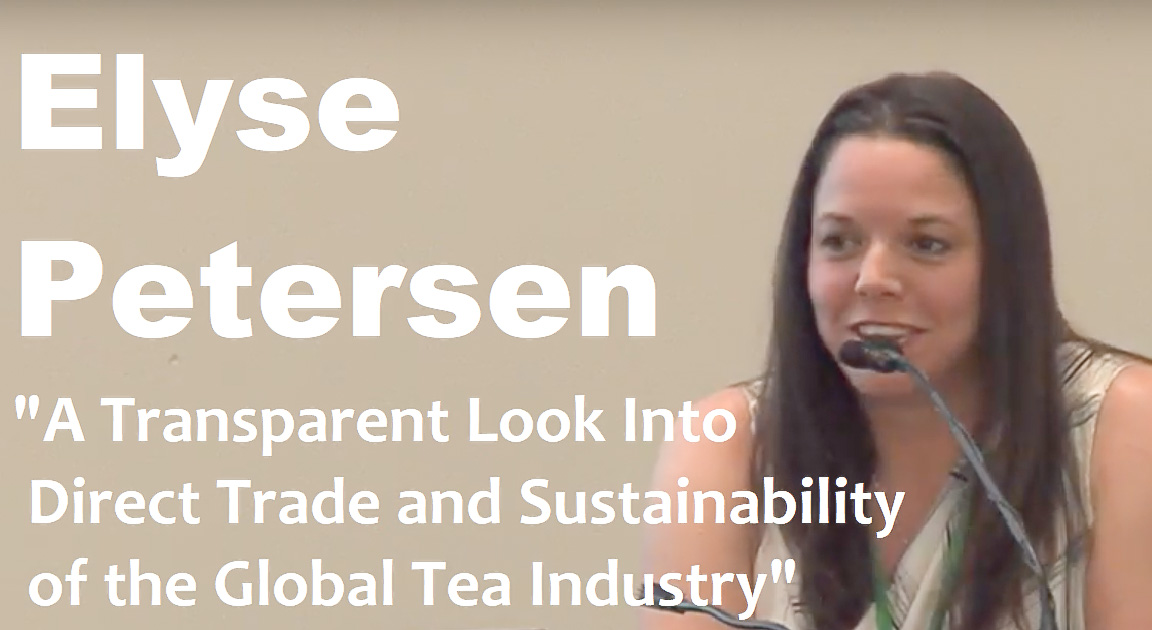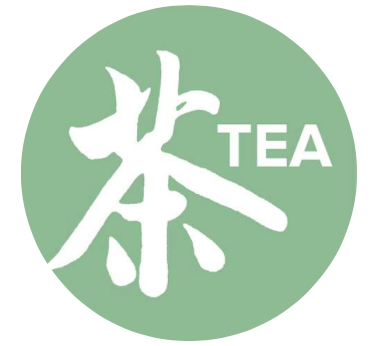Day One: February 22nd, 2018

Katharine Burnett - Global Tea Initiative Mission and Vision
Katharine Burnett, director of the UC Davis Global Tea Initiative for Tea Culture and Science, presents the Mission and Vision the first day of Global Tea Initiative 3rd Annual Symposium on February 22, 2018. Dr. Burnett is also director of the East Asian Studies Program and associate professor of Chinese art history at UC Davis.

Mark Gaskell - The Potential for Tea as an Alternative Small Farm Crop on the California Coast
Speaker at the UC Davis Global Tea Initiative for Tea Culture and Science 3rd Annual Symposium: "The Potential of Tea as an Alternative Small Farm Crop on the California Coast" on February 22, 2018. Tea is well adapted to many parts of California and mild climate coastal sites offer the conditions to grow excellent quality tea. As part of the growing interest and appreciation for specialty teas and different aspects of tea processing, there is new interest in exploring alternatives for tea-based agritourism in California. Tea is increasingly being appreciated for all of its potential diverse forms and more and more people have interest in learning more about the range of tea types. There are many types of tea rooms offering a wide range of tea tasting and ceremonial experiences in different parts of the US and throughout the world. It is relatively rare however, for the many experiences associated with tea to be combined with tea farming and small-scale tea plantings for visitors to appreciate as California agritourism. This presentation will summarize efforts by growers and farm advisors to address some of the key obstacles and opportunities for growing tea as a small farm crop in California.

Jeff Dahlberg - The Role of Kearney Station in the Research Efforts on Tea
Speaker at the UC Davis Global Tea Initiative for Tea Culture and Science 3rd Annual Symposium: "The Role of Kearney Station in the Research Efforts on Tea" on February 22, 2018. The Kearney Agricultural and Research Extension (KARE) based in Parlier, California had an experimental phase of growing tea plants for Lipton about 50 years ago, and has proof that California can grow tea.

Jacquelyn Gervay Hague - Growing Tea in California: Reality and Vision
Speaker at the UC Davis Global Tea Initiative for Tea Culture and Science 3rd Annual Symposium: "Growing Tea in California: Reality and Vision" on February 22, 2018. Discussions about what the UC Davis Chemistry department has been experimenting prove there is a possibility of growing tea in California.

Farming Tea Panel
Q&A

MJ Greenberg - Jade Valley Tea Arts
Speaker at the UC Davis Global Tea Initiative for Tea Culture and Science 3rd Annual Symposium on February 22, 2018. Tea cultivation can creating a new sustainable model for boutique commercial agriculture in the region through combining elements of permaculture, community organization, biodynamic practices, and plant communication. The approach of honoring the community-based traditional organic farming, hand production, and divine reverence of nature is introduced.

Nigel Melican - Keynote Address: Tea in the Future-- a Bumpy Ride
Keynote address speaker at the UC Davis Global Tea Initiative for Tea Culture and Science 3rd Annual Symposium: "Tea in the Future -- a Bumpy Ride" on February 22, 2018. The tea industry is set to change more during the next 20 years than it has in the last 200, and arguably in the last 2,000.The future of the industry faces some impelling external challenges that will precipitate fundamental changes affecting the workforce, the production process, the positioning of tea, and the product itself. We will look at the irresistible drivers for change – urbanization, population growth, increasing land scarcity, climate volatility - and endeavor to map their likely impact on a beverage that has remained remarkedly resilient over the millennia.
Day Two: February 23rd, 2018

Yuan Shen - Precision Tea Plantation Management
Speaker at the UC Davis Global Tea Initiative for Tea Culture and Science 3rd Annual Symposium: "Precision Tea Plantation Management" on February 23, 2018. There are many technological advancements made that could increase the success of tea plantations. Thorough scans done by cameras allow farmers to scrutinize issues and quickly resolve them.

Wenyan Han - Impact of Climate Change on Tea Production and Adaptation Strategies
Speaker at the UC Davis Global Tea Initiative for Tea Culture and Science 3rd Annual Symposium: "Impact of Climate Change on Tea Production and Adaptation Strategies" on February 23, 2018. Discussions of climate change prove that the tea production will face several challenges, some of which are occurring now.

Robert Hackman - Why Are Tea Drinkers So Healthy? The Science and Sustainability of Tea Beverages
Speaker at the UC Davis Global Tea Initiative for Tea Culture and Science 3rd Annual Symposium: "Why Are Tea Drinkers So Healthy? The Science and Sustainability of Tea Beverages" on February 23, 2018. Evidence prove the nutritional value of tea and other foods and beverages in relation to cardiovascular disease in human clinical studies.

Student Presentations
Quanrun He, Lydia Chin Yi Kao, Ran Wei, and Crystal Ye

Debarati Sen - Fempreneurs or Organic Tea Farmers? Entrepreneurialism, Resilience and Sustainability in Darjeeling, India
Speaker at the UC Davis Global Tea Initiative for Tea Culture and Science 3rd Annual Symposium: "Fempreneurs or Organic Tea Farmers? Entrepreneurialism, Resilience and Sustainability in Darjeeling, India" on February 23, 2018. How is organic farming in India sustained amidst the lure of green revolution that permeates policy, practice and farmer subjectivities in local communities? To answer this question, I propose that we explore the intersections of organic farming practices with emerging forms of gendered entrepreneurialism in organic farming communities within India. I contend that the success of organic farming depends on critical maneuvers that entail both economic and cultural entrepreneurialism and demonstrate forms of resilience expressed through what I call gendered projects of value. A focus on gendered projects of value that manifest at the family and community level enables us to understand how ordinary farmers in India understand, live with and act upon the regulatory frameworks of transnational alternative trade and agricultural regimes. As the organic certification of agricultural commodities proliferates globally many marginalized agricultural communities are brought within the folds of transnational organic trade networks at times through gender sensitive audits as a core feature. For instance, Fair Trade certification aims to create opportunities for gender sensitive capacity building by creating financial opportunities for marginalized women producers. Based on more than a decade of ethnographic fieldwork in the Darjeeling among women smallholder tea farmers, I document their protracted struggles to negotiate these transnational regulatory practices through tactical advancement of their gendered projects of value. An integral part of these tactical advancements are performances of global sustainability discourse combined with forms of subversive entrepreneurialism to address the lack of social sustainability in alternative trade and agriculture initiatives.

Paul Berry - The Shrinking Economic and Cultural Basis of Chanoyu 茶の湯 and Its Impact on the Nature of Tea Culture in Japan
Speaker at the UC Davis Global Tea Initiative for Tea Culture and Science 3rd Annual Symposium: "The Shrinking Economic and Cultural Basis of Chanoyu 茶の湯 and Its Impact on the Nature of Tea Culture in Japan" on February 23, 2018. During the last decade the decline in the popularity of chanoyu in Japan has accelerated to the degree that the market for antique utensils and those made by Living National Treasures has dropped precipitously. These changes have greatly weakened all the related craft industries (ceramics, lacquer, cast iron kettles, incense, fabric, etc.) that were supported by the previous popularity of chanoyu. The multiple cultural shifts that prompted these changes foreshadow a growing transformation of the place of tea in Japanese culture and art.

Katharine Burnett - Reconstructing Vietnam's Early Tea Culture Through Teapots
Speaker at the UC Davis Global Tea Initiative for Tea Culture and Science 3rd Annual Symposium: "Reconstructing Vietnam's Early Tea Culture Through Teapots" on February 23, 2018. Research projects an investigation into the development of tea cultures marked by the exchange of tea wares between China and its southwestern neighbors, starting with Vietnam, and before 1700, when steeped tea became the norm.

Societies and Cultures Panel
Q&A

Kunikazu Mochitani - Innovative Practices for Sustainable Matcha Tea Farming
Speaker at the UC Davis Global Tea Initiative for Tea Culture and Science 3rd Annual Symposium: "Innovative Practices for Sustainable Matcha Tea Farming" on February 23, 2018. Renewable energy company Leading Energy Agriculture Future (LEAF) exemplifies the possibility of sustainable power production fueled by agriculture.

Elyse Petersen - A Transparent Look Into Direct Trade and Sustainability of the Global Tea Industry
Speaker at the UC Davis Global Tea Initiative for Tea Culture and Science 3rd Annual Symposium: "A Transparent Look Into Direct Trade and Sustainability of the Global Tea Industry" on February 23, 2018. The future of the global tea industry is coming to a crossroads where increasing cost of production can not keep up with a growing thirst for affordable commodity tea. Through her work building Tealet, an online B2B marketplace for independent tea growers, Elyse Petersen will paint a picture of the current status of the tea industry and share stories of tea producing families that are building localized and transparent cultivation, production, and marketing systems of high quality, artisan tea. A trend for Old and New World Tea appreciation across the globe provides an opportunity for sustainable tea production and consumption.

Zhao Zhong - Tea and People: Inclusive and Sustainable Development for Small Tea Farmers
Speaker at the UC Davis Global Tea Initiative for Tea Culture and Science 3rd Annual Symposium: "Tea and People: Inclusive and Sustainable Development for Small Tea Farmers" on February 23, 2018. Many provinces of China grow tea, however, many are small tea farmers. Several inclusion and sustainable methods for the communities are introduced.

International Tea Panel
Q&A

Closing Remarks
Katharine Burnett, director of the UC Davis Global Tea Initiative for Tea Culture and Science, closes the second and last day of Global Tea Initiative 3rd Annual Symposium on February 23, 2018. Dr. Burnett is also director of the East Asian Studies Program and associate professor of Chinese art history at UC Davis.
